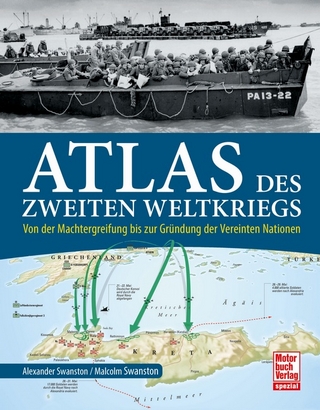
Engineering Victory
How Technology Won the Civil War
Seiten
2016
Johns Hopkins University Press (Verlag)
978-1-4214-1937-4 (ISBN)
Johns Hopkins University Press (Verlag)
978-1-4214-1937-4 (ISBN)
He reveals massive logistical operations as critical in determining the war's outcome.
Engineering Victory brings a fresh approach to the question of why the North prevailed in the Civil War. Historian Thomas F. Army, Jr., identifies strength in engineering-not superior military strategy or industrial advantage-as the critical determining factor in the war's outcome. Army finds that Union soldiers were able to apply scientific ingenuity and innovation to complex problems in a way that Confederate soldiers simply could not match. Skilled Free State engineers who were trained during the antebellum period benefited from basic educational reforms, the spread of informal educational practices, and a culture that encouraged learning and innovation. During the war, their rapid construction and repair of roads, railways, and bridges allowed Northern troops to pass quickly through the forbidding terrain of the South as retreating and maneuvering Confederates struggled to cut supply lines and stop the Yankees from pressing any advantage. By presenting detailed case studies from both theaters of the war, Army clearly demonstrates how the soldiers' education, training, and talents spelled the difference between success and failure, victory and defeat.
He also reveals massive logistical operations as critical in determining the war's outcome.
Engineering Victory brings a fresh approach to the question of why the North prevailed in the Civil War. Historian Thomas F. Army, Jr., identifies strength in engineering-not superior military strategy or industrial advantage-as the critical determining factor in the war's outcome. Army finds that Union soldiers were able to apply scientific ingenuity and innovation to complex problems in a way that Confederate soldiers simply could not match. Skilled Free State engineers who were trained during the antebellum period benefited from basic educational reforms, the spread of informal educational practices, and a culture that encouraged learning and innovation. During the war, their rapid construction and repair of roads, railways, and bridges allowed Northern troops to pass quickly through the forbidding terrain of the South as retreating and maneuvering Confederates struggled to cut supply lines and stop the Yankees from pressing any advantage. By presenting detailed case studies from both theaters of the war, Army clearly demonstrates how the soldiers' education, training, and talents spelled the difference between success and failure, victory and defeat.
He also reveals massive logistical operations as critical in determining the war's outcome.
Thomas F. Army, Jr., is an adjunct assistant professor of history at Quinebaug Valley Community College.
List of Maps
Acknowledgments
Introduction
Part II The Education and Management Gap
1. Common School Reform and Science Education
2. Mechanics' Institutes and Agricultural Fairs
3. Building the Railroads
Part II
4. Wanted: Volunteer Engineers
5. Early Successes and Failures
6. McClellan Tests His Engineers
7. The Birth of the United States Military Railroad
8. Summer–Fall 1862
Part III
9. Vicksburg
10. Gettysburg
11. Chattanooga
12. The Red River and Petersburg
13. Atlanta and the Carolina Campaigns
Conclusion
Notes
Essay on Sources
Index
| Erscheinungsdatum | 17.05.2016 |
|---|---|
| Reihe/Serie | Johns Hopkins Studies in the History of Technology |
| Zusatzinfo | 10 Maps; 18 Halftones, black and white |
| Verlagsort | Baltimore, MD |
| Sprache | englisch |
| Maße | 152 x 229 mm |
| Gewicht | 680 g |
| Themenwelt | Natur / Technik ► Fahrzeuge / Flugzeuge / Schiffe ► Militärfahrzeuge / -flugzeuge / -schiffe |
| Geisteswissenschaften ► Geschichte ► Regional- / Ländergeschichte | |
| Geschichte ► Teilgebiete der Geschichte ► Militärgeschichte | |
| Geschichte ► Teilgebiete der Geschichte ► Technikgeschichte | |
| Sozialwissenschaften ► Politik / Verwaltung | |
| ISBN-10 | 1-4214-1937-8 / 1421419378 |
| ISBN-13 | 978-1-4214-1937-4 / 9781421419374 |
| Zustand | Neuware |
| Haben Sie eine Frage zum Produkt? |
Mehr entdecken
aus dem Bereich
aus dem Bereich
von der Machtergreifung bis zur Gründung der Vereinten Nationen
Buch | Softcover (2023)
Motorbuch Verlag
24,90 €


